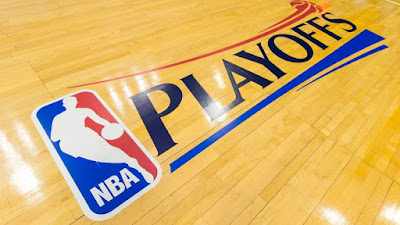Happy Friday! I hope you're doing well.
The resignation of Sam Hinkie over two weeks ago really has me pondering about team-building in the NBA. I detest the concept of tanking so much because I feel it goes completely against the entire point of sport, which is to win. Specifically with Hinkie, even after reflecting and doing some cursory research, I found his plan to be a cowards way around concrete team-building and development. He was so bent on avoiding the treadmill of mediocrity that his teams instead were some of the worst in NBA history. It's funny he and his followers were terrified about the "treadmill of mediocrity" when there was a realistically good chance that even when he got the unicorn superstar he was looking for, the Sixers would have to spend some time on it at some point along the way.
Hinkie and Sixers fans that brought into The Process sounded a lot like post-grad twenty-somethings or someone going through a mid-life crisis. They felt they were on a rudderless ship for such a long time, so they felt that something needed to be done differently. The problem is that the "something" has actually made things worse! However, now that changes have been made, hopefully the Sixers can take inventory and move in a more productive direction.
In all the reading and listening I have done on the topic in the past couple of weeks, I figure I would provide links to some of my favorite readings. I hope you will enjoy and learn something from them, regardless of which side of the tanking argument you're on.
"An Honest Reflection on Tanking" by Jack Neubecker is an amazing article that moves away from the anecdotes that come with discussions of tanking, and dives into the numbers.
"Losing is Not a Winning Strategy in the NBA" by Dave Berri was written months into Sam Hinkie's tenure, and looks at how teams fare down the line after they win a certain amount of games in a season.
"The Myth of the Tanking Spurs" by Andres Alvarez looks to dispel the conventional belief that the Spurs tanked the 1996-1997 season in order to get Tim Duncan. Did they, or was it a snake-bitten season for a powerhouse franchise?
"The Idea Behind The Process is Wrong, and Always Has Been" by Kevin Draper goes the more anecdotal route of skewering The Process and the foundations it was built upon. I add this link because it basically says a lot of the things I feel about it.
"Sam Hinkie Was a Cult Leader, Not an Innovator" by Jared Wade is a complete ethering of Hinkie that echoes my more emotional sentiments on the subject.
Lastly, I'll link you to my previous article "Sam Hinkie By the Numbers", where I exhibit some interesting numbers I found regarding his tenure in Philadelphia.



